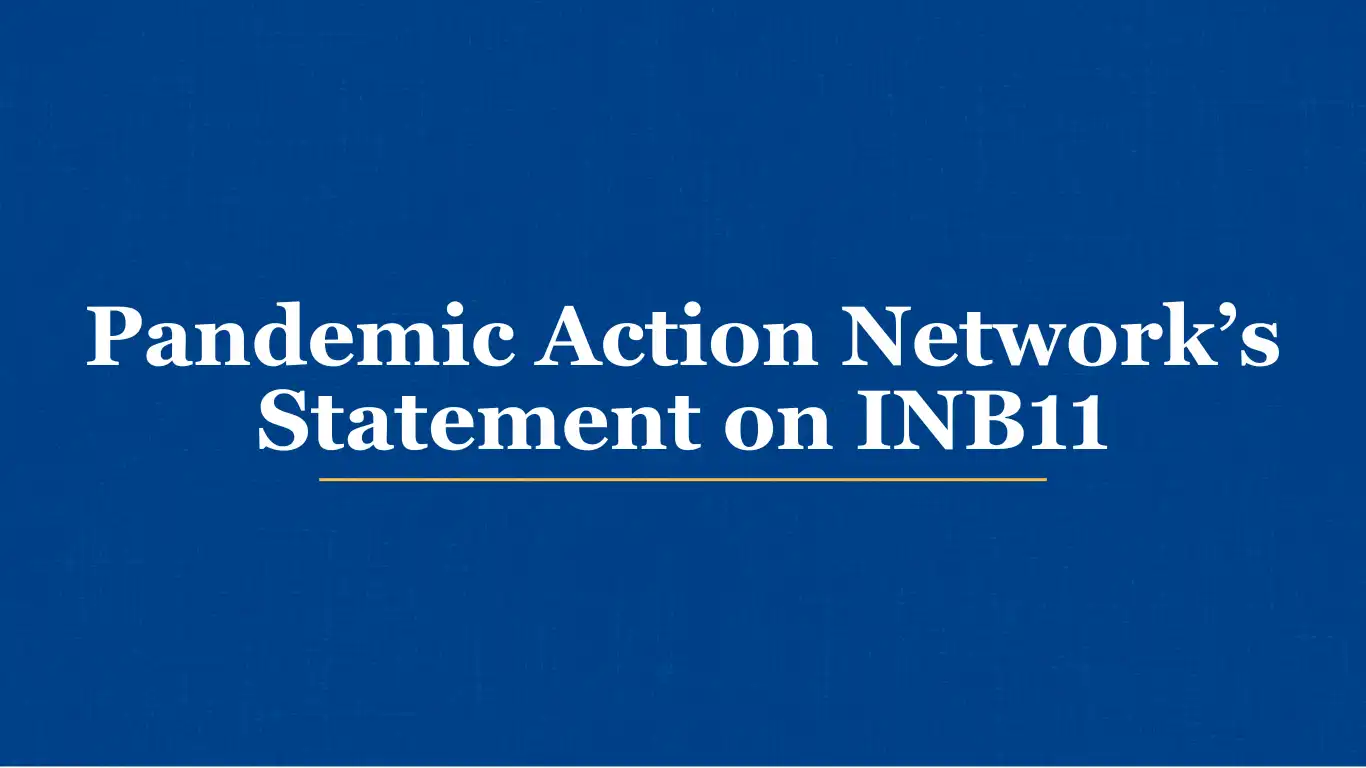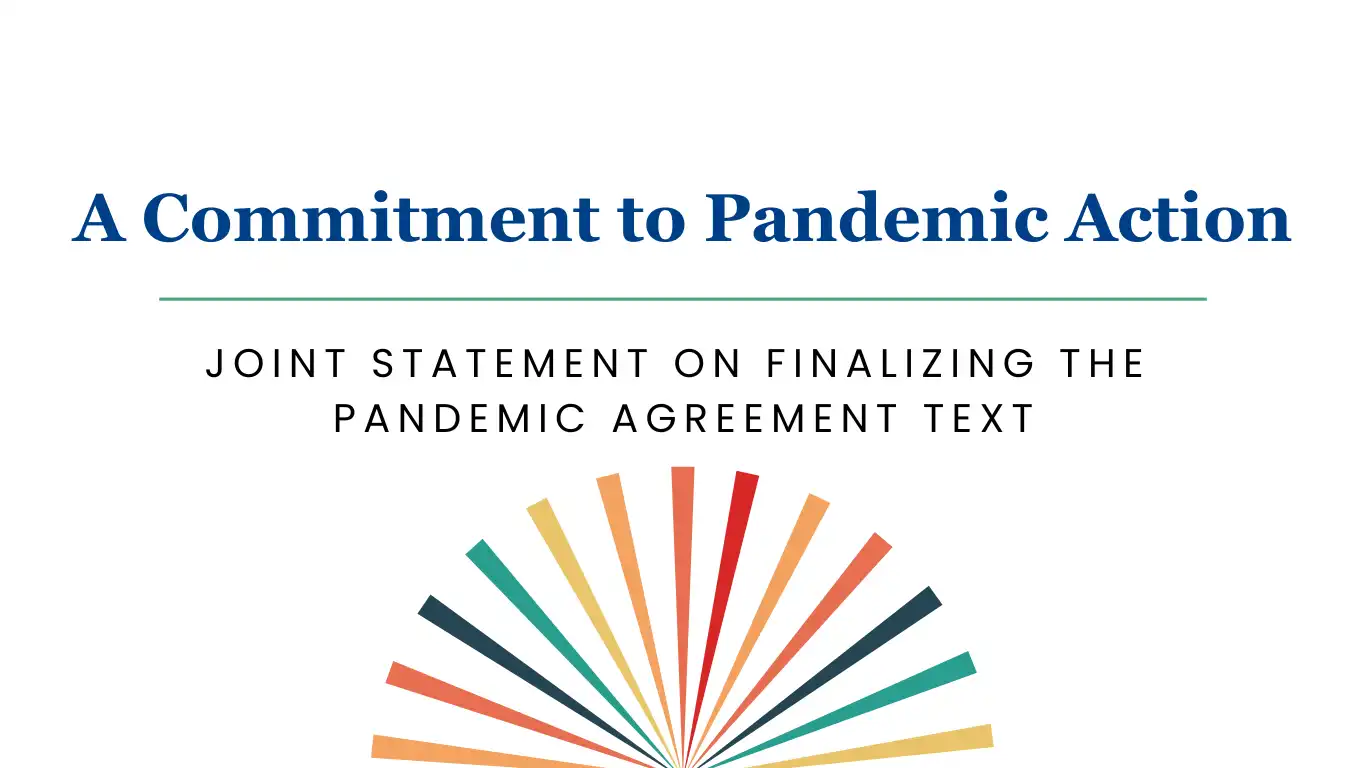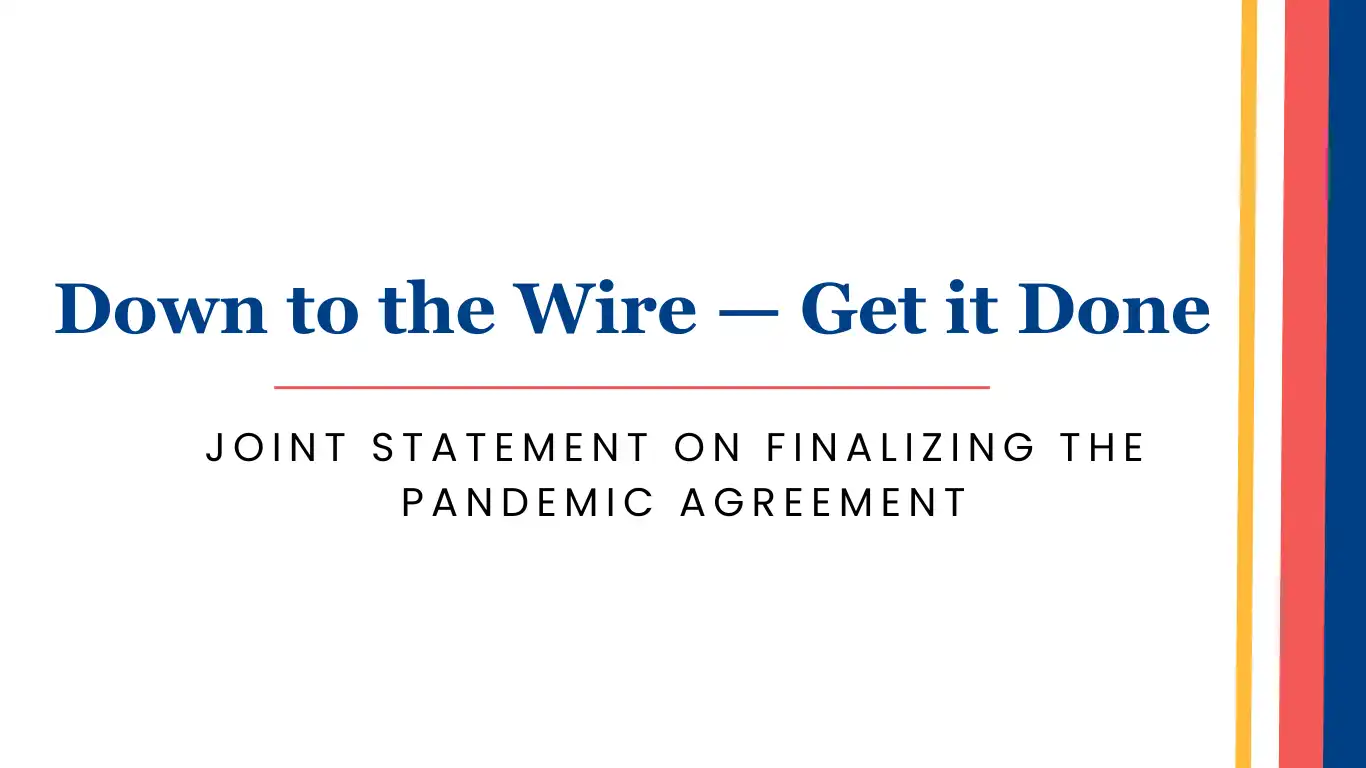Pandemic Action Network (PAN) urges Member States to focus on the following priorities during eleventh meeting of the Intergovernmental Negotiating Body (INB) for a WHO instrument on pandemic prevention, preparedness, and response:
As INB11 kicks off, it is imperative that WHO Member States uphold commitment to center equity in a final pandemic agreement, and prioritize meaningful changes to the global pandemic prevention, preparedness, and response (pandemic PPR) ecosystem to enhance systems and structures to prevent pandemic threats and ensure coordinated, timely, and equitable response. To achieve this, the final pandemic agreement must:
- Be as robust, inclusive, and universally applicable as possible. This will require pushing through tough negotiations on outstanding issues, like Pathogen Access and Benefits Sharing (PABS), technology transfer, intellectual property, and One Health, and not relegating issues to separate protocols, which could create a messy and disconnected international system, undermining accountability with different Member States party to different parts of an agreement.
- Advance strong accountability and timely action/implementation. No matter how a final agreement — or subsequent protocols — are legally positioned, it is imperative that they be structured to drive accountability for actioning agreed terms, and enter into force as expeditiously as possible.
- Reflect on the current mpox public health emergency of international concern and public health emergency of continental security designations and drive forward urgently needed reforms to the pandemic PPR ecosystem. The mpox emergency and limited implementation of a coordinated, global response to-date shows that we have failed to implement the lessons learned from COVID-19 and meaningfully reform global systems. While Africa CDC and WHO are working together on a continental response plan and many countries are stepping up to donate vaccines and support response, efforts are still too piecemeal, at inadequate levels, and a bandaid for the coordinated global action needed. INB negotiators must review the current challenges and bottlenecks in the mpox response, and work to address these gaps via the pandemic agreement. Specific areas warranting renewed and targeted attention include: regulatory harmonization and strengthening, technology transfer, geographically distributed manufacturing and R&D, equitable access to contracts, aligned/unified procurement and distribution of medical countermeasures during an emergency, and financing for epidemic/pandemic response.
- Uphold civil society and community engagement as essential to effective pandemic PPR. The INB process and pandemic agreement must prioritize engagement of civil societies and communities, including meaningful participation as relevant stakeholders in the negotiation process and as leaders in driving pandemic PPR at the national, regional, and global levels.
The mpox emergency only heightens the urgency for coordinated global action to advance a more robust and resilient pandemic PPR ecosystem. We urge Member States to continue to work together toward a meaningful international pandemic agreement that addresses — not skirts — the sticky issues we need to address to change the ineffective status quo, drive global solidarity, and enshrine equity for all people, everywhere.



